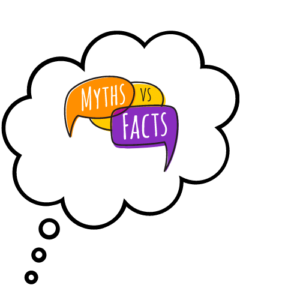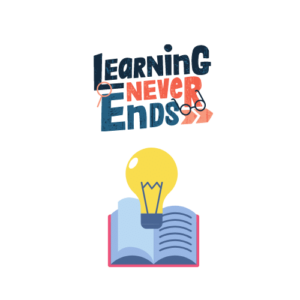You can a lot with programming, encompassing many career choices, and many people think you need to be a genius. It’s easy to assume that computer programmers are geniuses. Do I Need To Be A Genius To Be A Programmer?

When you consider a programmer, you probably think of someone in the cold dark basement writing code to take over the world or someone that went to MIT, Harvard, or any other Ivy League school in the US. Are they distant relative to Albert Einstein? Every computer programmer must be mensa-level intelligent, right?
You may think you can only attain a career in web development if you are a brainiac and have an average IQ. Math was probably your worse subject in school, and you struggled to get a “C” average throughout high school and college.
You probably think they are pretentious, and when you hear them talking, all you hear are zeros and ones.
But being a web developer, it’s flattering that people think I’m a genius. Sometimes when I speak to my friends, they don’t even understand what I’m talking about, and they think I’m talking in ones and zeros like I’m talking about a flux capacitor.
If I tell you this one secret, you need to promise not to tell anyone. It is a secret that we programmers keep from you because we want to seem like we are geniuses and love it when you call us geniuses.
Many programmers have average intelligence and are not the next Albert Einstein.
You do not have to be a genius to be a programmer. I know, right. I can hear your surprise. It is a relief hearing that. You were sworn to secrecy, and don’t tell anyone. If you tell people, it will be complete chaos.
My Experience
When I was 18, my parents told me that I should consider going into computer science, which is one of the degrees you get as you enter the world of programming. But I didn’t like to challenge myself.
I did well in school and mainly got ‘A’s and ‘B’s, but I didn’t feel that was good enough to get a degree in Computer Science. You needed to be super smart, like Sheldon in Big Bang Theory.
I didn’t do well on my ACT test, and I only got an 18 on a scale of 36. I wasn’t a great candidate to study programming.

However, like every 18-year-old, I didn’t listen to my parents because I thought I knew better. I had a lot of circumstances in life that caused me to reevaluate my decisions.
I started studying programming in my late 20s. I liked that you didn’t need to be a genius like I initially thought.
Misconceptions
Believing you need a genius is a huge misconception. I think people believe this misconception because,
- How programmers are displayed in media – In movies, programmers seem super smart and have magic powers. Suppose you have ever seen “The Social Network” about the start of Facebook. In that case, it is easy to compare yourself to Mark Zuckerberg and think you are not smart enough to become a programmer.
- Language – Programmers use fancy language that sounds smart, words like encapsulation, recursion, abstraction, and cloud computing. What is all that?
These are misconceptions that intimidate a lot of people. You don’t have to be a genius, but you must be willing to improve.
You definitely can learn the industry jargon. I was intimidated, but I was willing to learn.
How To Handle These Misconceptions?
There are many ways to handle these misconceptions and not sell yourself short. It is just a matter of not listening to your misconceptions and preconceived notions.
Take The Risk
You only know if you are good at something once you try. If it turns out you are not good, keep practicing. If you like doing it, don’t give up because you do not understand something. Keep practicing until you get better. When I first started programming, I needed to improve. When my senior developer friend started, he could have been better. Mark Zuckerberg is just an average human, not a robot. He probably was not good at programming when he was a kid. But my point is we all need to start somewhere.
No one is born with a massive amount of knowledge. If you know someone who was, let me know. There may be outliers out there. But most programmers aren’t outliers and are of average intelligence.
Do Not Compare Yourself
You probably put enough pressure on yourself anyway, and comparing yourself will add to your stress. There will always be someone better than you at something, and they did better at school than you.
Stop comparing yourself to others. Just stop, please.
When I was learning programming, I compared myself to others with more experience in the industry than I did. But they had years of experience; of course, they are better at programming than I am. But I can get there, and you can too. Comparing yourself will significantly hinder your progress.
Imposter Syndrome is Normal

Imposter syndrome is doubting your skills. A lot of good programmers I know have imposter syndrome. They are supposed to be geniuses and be confident, aren’t they? But, they also experience imposter syndrome, as oddly as it sounds. That should be proof to support the claim that you do not need to be a genius to go into web development.
Keep Getting Better
Now that you have a lot of evidence to prove that you don’t need to be a genius, it’s essential to keep learning. There are free resources you can find online and free resources.
If you stop learning, you stop growing.
Where You Can Learn
So, If you want to switch to a career in programming you no longer have to believe the lie that you need to be a genius. What a relief?
Are you ready to find some great resources to help you learn more about programming?
Final Thoughts
You don’t have to be a genius. Believe in yourself and try it out. Don’t be intimidated. If you like programming, never stop.
If you have any questions or comments, ask below.
The band “Journey” said it best, “Don’t Stop Believing.”
I have been in the web development industry since 2016. It is my desire to guide aspiring and seasoned developers alike through the complex landscape of web development and software engineering. I combine my academic prowess, with degrees from Western Governor University and a Boot Camp certificate from Bloom Tech, with real-world experience to educate and inspire.
As the force behind DevTuneUp.com, I offer a treasure trove of tutorials, how-tos, and insights into the ever-evolving tech industry. With a sharp focus on demystifying technology and a goal to make DevTuneUp.com a cornerstone for tech enthusiasts, I leverage my expertise in SEO optimization and social media marketing to reach and empower a global audience. Join me on this journey to navigate the digital world with confidence and skill.
This post offers a refreshing perspective on the common misconception that one needs to be a genius to pursue programming. It’s relatable for those intimidated by the subject, providing personal anecdotes and debunking myths about the industry. The encouragement to take risks, avoid comparisons, and overcome imposter syndrome resonates well, making programming feel more accessible and less daunting. Overall, it’s an empowering read for anyone considering a career in programming.
Hello Jordan! Your article beautifully dismantles the misconception that one needs to be a genius to pursue a career in programming. Your personal narrative shared adds a relatable touch, making it clear that programming is not reserved for prodigies but is accessible to anyone willing to learn and improve. The article effectively addresses common misconceptions, such as media portrayals and intimidating industry jargon, offering practical advice on handling self-doubt and avoiding unnecessary comparisons. The emphasis on taking risks, embracing imposter syndrome as normal, and the importance of continuous learning resonates positively, inspiring readers to believe in their potential and pursue programming with confidence. Thank you for sharing!
Being a programmer is more about creativity, problem-solving, and persistence than sheer genius. Sure, some aspects require deep understanding, but anyone with dedication can learn. Think of it like building with LEGO – starting small, experimenting, and gradually constructing bigger things.The key is to stay curious, keep learning, and embrace the journey.
It’s reassuring to learn that programming success isn’t solely reserved for geniuses. I believe determination, problem-solving skills, and a passion for learning are key ingredients for mastering programming.
Question: What advice would you give to someone who feels intimidated by the idea of entering the programming field due to misconceptions about intelligence requirements?
Just focus on the basics via coding platforms online. There are paths you can take that guide you through a linear progression like codecademy
Your description of the stereotypical programmer is brilliant. I remember thinking almost exactly as you described. That was back in 1985, my first encounter with computers and programming. I took a class at the local community college. I felt like I was in over my head, which I was, but after while things did start to make sense. However, I never used what I learned. Now, I’m pretty sure everything I learned back then is ancient, useless information. Thanks for the great article.
Bob
Hi Jordan. I very much enjoyed reading this article. It totally speaks to me since I am just beginning my future in a new career and understanding the jargon has been a complete learning curve. I found your article to be very encouraging and a “breath of fresh air,” letting me know that I can do this! Sharing your experience with your readers, along with how to deal with misconceptions, move forward, and believing in oneself, was appreciated and helpful. Although I have experienced it many times in my life, I had never heard the name “imposter syndrome” before. I hope that anyone that is considering programming gets a chance to read this and be inspired.